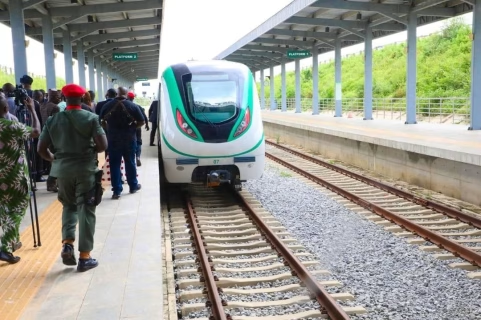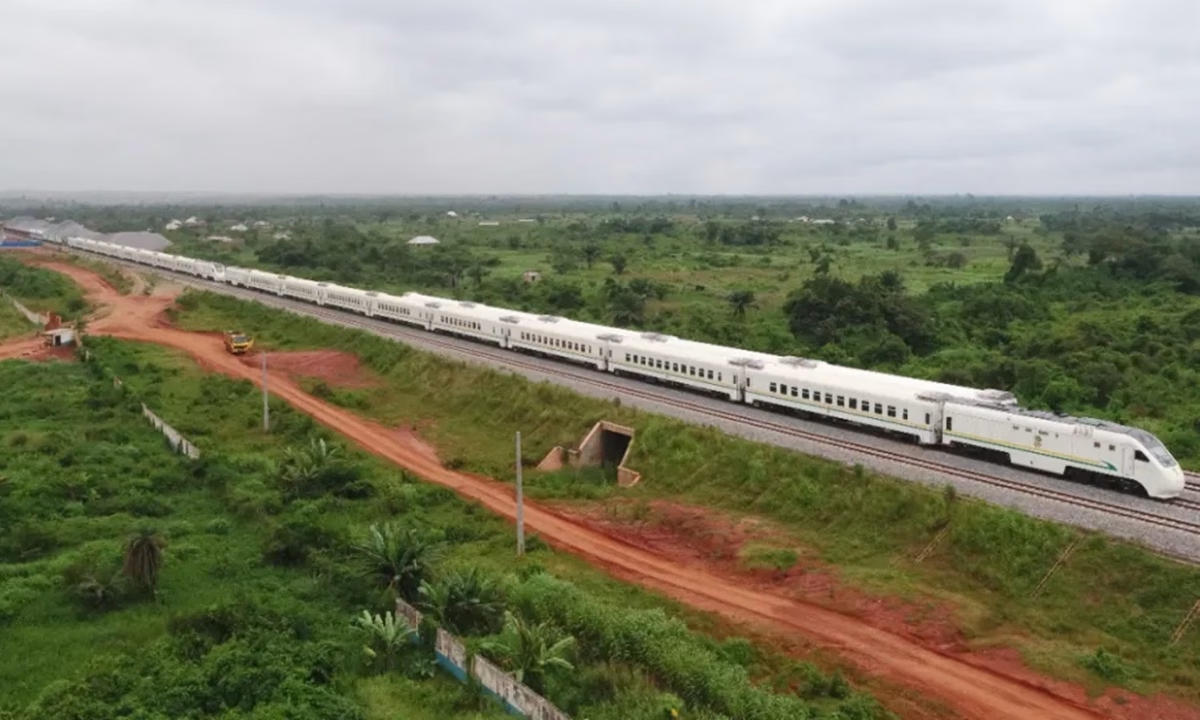Updated September 3, 2025: Many have been inquisitive as to how Nigeria aims to power its bullet train in its $60 billion high speed rail project. The proposed project has had critics pointing fingers on one of its major flaws, how to power the rail. A bullet train would require uninterrupted electricity. However, Nigeria barely generates 5GW, far short of the minimum requirement of 12GW. Additionally, it has decrepit distribution infrastructure that is frequently vandalized. The government has noted that to ensure the project’s smooth success, the proposed high-speed rail project will be directly linked to Nigeria’s gas sector. This is because the trains will require a significant and reliable gas supply for power.
The project will involve developing gas infrastructure to meet the energy needs of the new rail system without reliance on the national power grid. The gas development infrastructure, which forms part of the layout, is expected to cost over $4 billion. Ekperikpe Ekpo, Minister of State for Petroleum Resources assured the consortium of investors of adequate gas supply. “We have sufficient gas that needs to be used for the project, I can assure the investors,” he said. Despite skepticism, the bullet train infrastructure is edging closer to execution. He added that $55 billion of the funds earmarked for the first phase is available.
The train is expected to enhance activity on the Lagos, Abuja, Kano, and Port Harcourt corridor, Moreover, it will improve movement, increase property values and boost tourism. Nigeria has been steadfast in implementing various transport infrastructure projects such as the Port Harcourt-Maiduguri rail link project which is expected to be essential in improving mobility and access.
August 13, 2025: Nigeria’s high speed rail project is taking shape as construction of the $60 billion megaproject draws towards implementation. The Federal government will be working in collaboration with De-Sadal Nigeria Limited and China Liancai Petroleum Investment Holdings Limited. The scope of implementation entails the construction of a 4,000-kilometer high speed rail project in Nigeria. This was disclosed when the consortium presented proof of funds to the Secretary to the Government of Federations. Moreover, the Ministers of Transportation and State for Petroleum Resources.
Chief Executive Officer of De-Sadal Nigeria Limited, Samuel Uko, provided insight on how the construction would commence. He noted that the fiirst phase of the project would cover four major cities in Nigeria. These include Lagos, Abuja, Kano, and Port Harcourt. “Today, with our partners, I have just presented the official approval form for the project. The fund is coming from the Asian Development Investment Bank. And it is to cover the first phase of the project that cuts across four major cities in Nigeria,” he noted.
Also read:
The Scope of Implementation on Nigeria’s High Speed Rail Project
The Federal government has shown its zeal and commitment to ensuring that Nigeria’s high speed rail project becomes a reality. The rail line will stretch from Lagos to Abuja, to Kano, and from Abuja to Port Harcourt. The government, through ICRC, approved the outline of the business plan, drawing the project closer to commencement. The next step was for the consortium to submit the approval form to the government, which they did on Tuesday. Samuel Uko noted that he was confident in the project and that “in the shortest time possible, Nigerians will start enjoying a high-speed rail in Ngeria.”

While speaking on the amount, he said a total of $60 billion had been approved for the project. “Today, $60 billion approval fund has just been submitted to the government through our financial and technical partners. The first phase of the project is $55 billion. So the fund is ready, and the country is ready to move forward with this project,” he added. On the timeline for the completion of the project when commenced, Uko provided valuable insight. The executive noted that the 1600 kilometers that covers the four major cities of the country will take 36 months to build. However, he noted that it may not take the whole 36 months. For instance, from Lagos to Lokoja, he noted that they will cut across about six states. However, when they get to the second, third state, the people from the first two states will start enjoying the speed train.
Also read:
$3 Billion Port Harcourt-Maiduguri Rail Link Project Recommences in Aba, Eastern Nigeria.
Construction of $350m Cross River Railway Project Commences in Nigeria

Leave a Reply